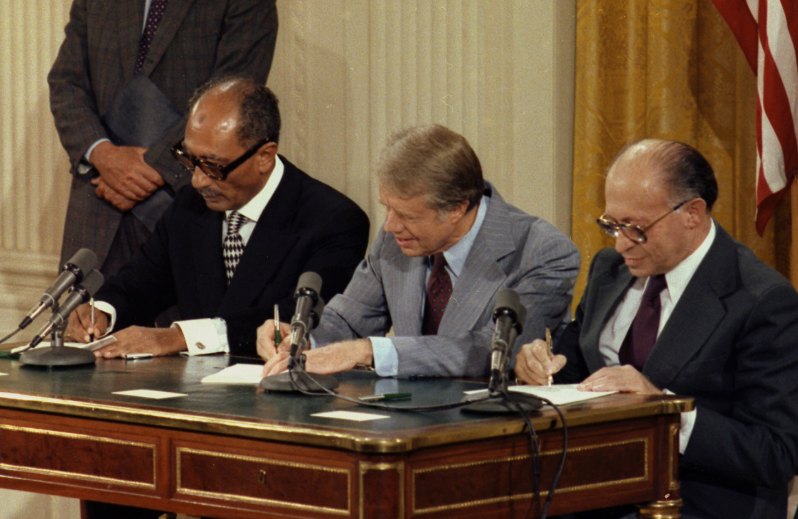Egypt’s diplomatic relations with Israel have taken a notable turn, with Cairo announcing that it will not appoint a new ambassador to Tel Aviv until the ongoing Gaza conflict reaches a conclusion. This decision underscores Egypt’s discontent with the escalating violence in Gaza and signals the country’s frustration with its neighbor’s military operations.
The former Israeli Ambassador to Egypt, Amira Oron, confirmed the news to Haaretz, revealing that Egypt’s move was not just symbolic but also a political statement. The decision to withhold an ambassador and refuse the credentials of the newly appointed Israeli envoy, Uri Rothman, highlights the complex and delicate nature of the countries’ relationship in the current climate.
The situation has raised questions about the broader implications of Egypt’s stance, particularly in the context of its role as a key player in Middle Eastern diplomacy and its long-standing involvement in ceasefire negotiations between Israel and Gaza militants.
A Diplomatic Snub: Egypt’s Decision to Withhold Ambassador Appointment
Egypt’s decision to refrain from sending a new ambassador to Israel sends a strong message about its disapproval of the ongoing military actions in Gaza. According to Oron, the decision is tied to the ongoing conflict’s impact not only on Gaza but also on Egypt’s internal political stability. The continuation of military operations exacerbates public unrest, particularly among the Egyptian population, which has grown increasingly frustrated with the violence spilling over from Gaza.
“Public sentiment in Egypt is tense,” Oron said. “The longer this conflict drags on, the more it becomes difficult for the Egyptian government to manage its relations with the people and with the broader Muslim world.”

The role of the Egyptian public, especially its Muslim population, plays a significant part in Cairo’s foreign policy decisions. The Egyptian government is under immense pressure to align itself with the sentiment of its citizens, many of whom are sympathetic to the Palestinian cause. As Oron noted, this growing unrest offers leverage to political groups like the Muslim Brotherhood, who have long been critical of the current Egyptian regime.
This diplomatic impasse underscores the importance of Egypt in the Middle Eastern geopolitical landscape. Egypt has long been a mediator between Israel and the Palestinian factions, and its decision to withhold a new ambassador could have significant consequences on the region’s peace efforts.
The Impact of Egypt’s Decision on Israel and the Middle East
Cairo’s refusal to engage diplomatically with Israel signals a shift in how Egypt views its relationship with the Jewish state, especially given its historical role as a peace broker. Since the signing of the Camp David Accords in 1978, Egypt has been a crucial partner in mediating between Israel and Palestine. However, Egypt’s patience seems to be wearing thin, and its latest move could indicate a reevaluation of its diplomatic approach toward Israel.
Israel, on the other hand, may feel isolated by Egypt’s refusal to engage at the ambassadorial level, which comes at a time when the Middle East’s political and security landscape remains volatile. Egypt’s absence at the diplomatic table could complicate any future efforts to broker peace, especially as the Gaza war continues.
The Israeli government, led by Prime Minister Benjamin Netanyahu, has long relied on Egypt as a stabilizing force in the region. However, the current situation in Gaza has led to rising tensions. If Egypt’s stance continues, it could undermine future peace talks and negotiations, particularly if Israel finds itself with fewer regional allies.
Potential Ripple Effects in the Region
Egypt’s diplomatic snub to Israel could also have ripple effects beyond the two countries. As a leading Arab nation, Egypt’s position is closely watched by its neighbors, especially those in the Gulf region. Should Egypt continue to withhold its ambassador, it may encourage other Arab nations to adopt a more confrontational stance toward Israel, further complicating the Middle East’s already fragile diplomatic environment.
For Egypt, the internal pressure to act is undeniable. Public protests and unrest against Israel have been a feature of life in Egypt during the conflict, and the government must navigate these sensitivities carefully. The Egyptian leadership is also aware of the increasing influence of the Muslim Brotherhood, which has been critical of the regime’s ties with Israel. Should these tensions grow, they could destabilize Egypt’s domestic politics and, by extension, its foreign policy.
The Future of Egypt-Israel Relations
Looking ahead, it remains uncertain whether Egypt will resume sending an ambassador to Israel or continue withholding its diplomatic representation. The timing of any change in Cairo’s stance will likely depend on the trajectory of the Gaza conflict and how Israel addresses the broader regional concerns that Egypt is grappling with.
Moreover, Egypt’s role as a peace broker remains as crucial as ever. With ceasefire negotiations ongoing, the country’s diplomatic involvement is pivotal in finding a resolution to the crisis. However, until the war comes to an end, Egypt’s absence from the Israeli diplomatic scene could pose significant challenges to peace efforts in the region.
The dynamics between Egypt and Israel have been shaped by historical agreements, shared interests, and occasional tensions. But as the conflict in Gaza continues to unfold, Egypt’s decision to hold back its ambassador suggests that the countries’ diplomatic ties are at a critical juncture.
